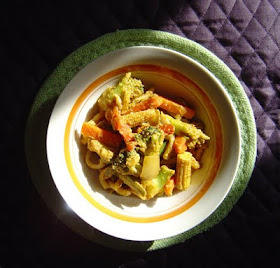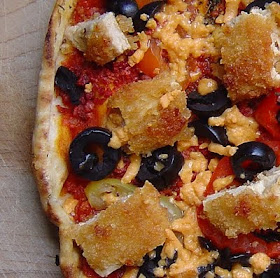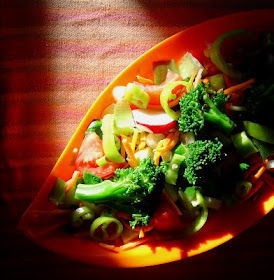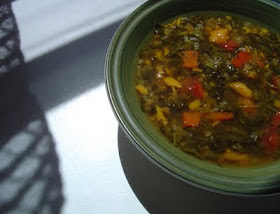These articles, opinion pieces, columns or newspaper blog posts usually split into two general types. On one hand, you have those who are just trying to take a swipe on some level or another at vegans or those who in any way weigh the issues surrounding the exploitation of nonhuman animals seriously. The tone of many of these pieces ranges from mild mockery to outright hostility. On the other hand, you have the more innocuous-seeming articles by people who may (or may not be) be well-intentioned but who at least keep the barbs and schoolyard comments in check. Many of these articles are still these unfortunate fly-by-the-seat-of-your-pants excuses to squeeze out copy that presents itself as offering up any sort of useful or valid information on veganism or on what's involved in going vegan. Too many are just heaps of misinformation cloaked in good intentions. Whether hostile or not, the articles frequently present veganism as a diet, often side-step animal rights issues as being at the heart of going vegan, invariably present eating vegan as self-imposed deprivation, and almost always go to great lengths to emphasis the deliciousness and irresistibility of meat, cheese and other animal products.
O'Shea's article definitely falls into the former camp, with the level of derision in it vacillating between gormless and mean-spirited. It's entirely focused on diet, and aside from a token mention of "ethics" as a motivator to go vegan (tucked in between "health" and "because, well, their girlfriend suggested it"), no time is wasted in actually discussing what animal use entails. O'Shea instead begins by bemoaning various things vegans can't eat (including mashed potatoes, for some reason) using words like "forbidden" to describe nonvegan foods and "hardcore" to describe those who avoid bone char-processed sugar. Avoiding nonvegan food = restrictive and extremist.
O'Shea's so-called vegan experiment was, of course, limited to food and was meant to last no longer than a whopping two whole weeks. How did he get ready for it? Apparently, with a few Google searches and by writing it all off as awful before he had even begun. He writes: "I didn't do much preparation other than find a paperback vegan cookbook, conduct some web research and brace myself for my first taste of soy milk." He bemoans his black coffee (because vegans obviously don't use sweeteners or whiteners in coffee) and plain brown rice cakes (because vegans obviously champion the taste of cardboard), as well as the wretchedly awful reality of being forced to eat meatless salads deprived of stinky blue cheese dressing (since salads without meat and stinky blue cheese dressing are naught but so much wilted lettuce). He bemoans the lack of vegan options spontaneously manifesting themselves his cupboards but adds that "we [sic] vegans are creative" and explains how to make a bowl of cereal using almond milk. Any other forays into cooking he makes, he portrays as disgusting, adding that "when you're subsisting on twigs and apricots, you'll seek any safe harbor". A vegan waffle is "supple burlap". A black bean burger ordered at a restaurant is the "vile bastardization of the all-American meal".
And somehow, it's after all this that he asserts that "something went horribly wrong". After one week of a badly-planned attempt to eat a strict vegetarian diet, he throws a dinner party complete with the aforementioned purportedly irresistible animal products which customarily get referenced at some point in articles like O'Shea's, and of course O'Shea finds himself -- in his own home, at his own dinner party -- with nothing but cucumbers and bread to eat, so gives in and gorges himself with gusto on pig and chicken flesh. Shortly thereafter on a trip to NYC, still during his two-week-long supposed attempt at something he mislabels going vegan, O'Shea lumps himself in with vegans again while trying to excuse away what he asserts none but the most "pure" of vegans could possibly resist:
All the willpower in the world faded away as my environment surrounded me. I'd like to tell you I was pure, the pinnacle of principled veganism, but after the bagel with cream cheese, the steak slathered in garlic butter, the turkey BLT with mayo, the bucket of beef brisket nachos and the three pieces of classic New York pizza, I'd only be fooling myself. Yet I dare any vegan among us who's claimed to resist such temptation to cast the first fiddlehead.Somehow, though, O'Shea insists on continuing to present himself as being "vegan" during the rest of his two-week experiment, post meat/egg/dairy-bacchanalia, mentioning trying to "reclaim [his] vegan pride" while complaining about the disgustingness of quinoa, potatoes, bananas and peanut butter and describing himself on his supposedly last day "as a vegan" as full of anxiety and in "gastric distress". He slips in that his wife even commented on his body odour, as if somehow not eating animal products was responsible. He sums the experiment up as a failure (no, really?) and leaves his readers with this summary of what being vegan inevitably entails:
I spent my days either dreaming of deli meat snacks as my hummus-filled stomach grumbled like low-rolling thunder, or I gorged myself on an anti-vegan menu in fits of delirious indiscretion, justifying my actions through a combination of deceit, rationalization and head fakes. It's no way to live - this vegan life.It's unfortunate that O'Shea should fancy himself an expert mouthpiece on what being vegan is like when nothing -- not a single stinking thing -- about his experiment involved veganism on any level whatsoever. In the end, sadly, it's just one more article to throw on to the ever-growing pile of mainstream writings in the media both misrepresenting and maligning a way of life which is so simple, so right, so healthy and which is so far-removed from the self-infliction of misery that O'Shea would have you believe it is.
If you haven't already done so, please consider going vegan. By this I don't mean O'Shea's half-arsed newspaper-filler-producing temporary meat-fest fantasy take on it, but that you actually and earnestly go vegan.













